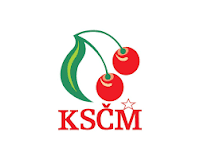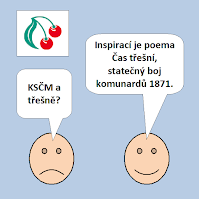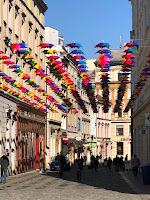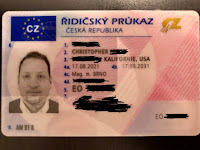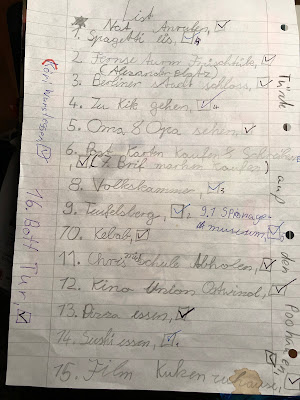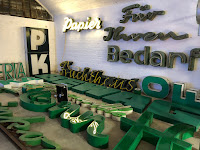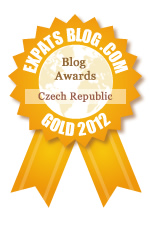One of the responsibilities of the Czech President is to confer state decorations to those individuals who the state recognises as significantly contributing to building a free democratic society, professional accomplishments, distinguished service to defend the country, heroism or other exceptional deeds.
There are two different types of state decorations - orders and medals. Orders are higher than medals and both may be awarded to both citizens or non-citizens of the country. The rules governing the issuance, protocol, etc., are all codified in Czech law.
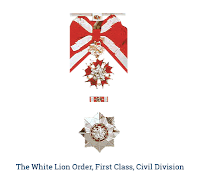 Řád Bílého lvl, the Order of the White Lion, is the highest decoration that may be bestowed upon individuals in recognition of superior accomplishments contributing to the welfare of the Czech Republic. There are five classes of this award. There are slight differences in the appearance of the award depending on if it is award to a civilian or if it is a military award.
Řád Bílého lvl, the Order of the White Lion, is the highest decoration that may be bestowed upon individuals in recognition of superior accomplishments contributing to the welfare of the Czech Republic. There are five classes of this award. There are slight differences in the appearance of the award depending on if it is award to a civilian or if it is a military award.

The fifth and fourth class are crosses.

The third class is an order that is worn around the neck, the second class is an order that is worn around the neck with a chest star, while the first class is a grand cross, with a sash with the badge and a star.

There's also a supreme grade which is the same as the first class but it is accompanied with a gold neck chain. However, the supreme grade can only be awarded to heads of state.
Czech law says that the President is entitled to the supreme award after leaving office following a joint resolution by both the Chamber of Deputies and the Senate.
On 28 October 2014, Present Zeman awarded the First Class honour to Sir Nicholas Winton who, at the onset of WW2, organised the rescue of 669 Jewish children from Czechoslovakia to England. The British press dubbed him the "British Schindler". Including the offspring of those 669 children, around 6,000 people owe him their lives.
The Order of the White Lion isn't only state honour that he received. In 1998, President Václav Havel awarded him the Order of Tomás Garrigue Masaryk, Fourth Class. He had also been awarded the Cross of Merit of the Minister of Defence, First Class. In 2008, the Czech government nominated him for the Nobel Peace Prize.
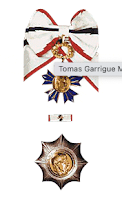 Řád Tomáše Garrigua Masaryka, the Order of Tomáš Garrigue Masaryk, is the second highest award after the Order of the White Lion. It is named after the the first president of Czechoslovakia and recognises eminent contributions to the development of democracy, humanity and human rights. The order was established in 1990 after the Velvet Revolution and re-established in 1994 following the Velvet Divorce. There are five different classes and they may be awarded to both Czech citizens and foreigners.
Řád Tomáše Garrigua Masaryka, the Order of Tomáš Garrigue Masaryk, is the second highest award after the Order of the White Lion. It is named after the the first president of Czechoslovakia and recognises eminent contributions to the development of democracy, humanity and human rights. The order was established in 1990 after the Velvet Revolution and re-established in 1994 following the Velvet Divorce. There are five different classes and they may be awarded to both Czech citizens and foreigners.
 Medaile Za hrdinství, the Medal of Heroism, is the country's third highest honour. It recognises heroism in combat and deeds performed by individuals at the risk of their own lives with the view of saving other human lives or substantial material values. It's mainly a military award but it has been occasionally awarded to civilians. This is the only state honour that doesn't have different classes.
Medaile Za hrdinství, the Medal of Heroism, is the country's third highest honour. It recognises heroism in combat and deeds performed by individuals at the risk of their own lives with the view of saving other human lives or substantial material values. It's mainly a military award but it has been occasionally awarded to civilians. This is the only state honour that doesn't have different classes.
Five Czech soldiers were posthumously awarded the medal for their actions during the 2014 Bagram Airfield bombing in Afghanistan.
 Medile Za zásluhy, the Medal of Merit, is Czechland's fourth highest honour. It is awarded to those who have provided meritorious service to the state, or a territorial self-governing entity, in the fields of economy, science, technology, culture, arts, sports, enlightenment and education, defence and security of the state and the people. There are three different grades of this award.
Medile Za zásluhy, the Medal of Merit, is Czechland's fourth highest honour. It is awarded to those who have provided meritorious service to the state, or a territorial self-governing entity, in the fields of economy, science, technology, culture, arts, sports, enlightenment and education, defence and security of the state and the people. There are three different grades of this award.
 Some previous recipients of the the Medal of Merit include:
Some previous recipients of the the Medal of Merit include:
- Věra Čáslavská, Second Grade, 1995
- Milan Kundera, First Grade, 1995
- Miloš Forman, First Grade 1995
- LL.D. Bohumil Hrabal, First Grade, 1996
- Martina Navratilova, First Grade, 1998
- Emil Zátopek, First Grade, 1998
- Zdeněk Svěrák, Third Grade, 1999
- Zdeněk Miler, First Grade, 2006
- Karel Gott, First Grade, 2009
- Jaromír Jágr, Second Grade, 2010
 On Saturday Vašek had a little birthday celebration at a friend's chata in Jundrov which is a Brno suburb about 15-20 minutes away by bus.
On Saturday Vašek had a little birthday celebration at a friend's chata in Jundrov which is a Brno suburb about 15-20 minutes away by bus.










